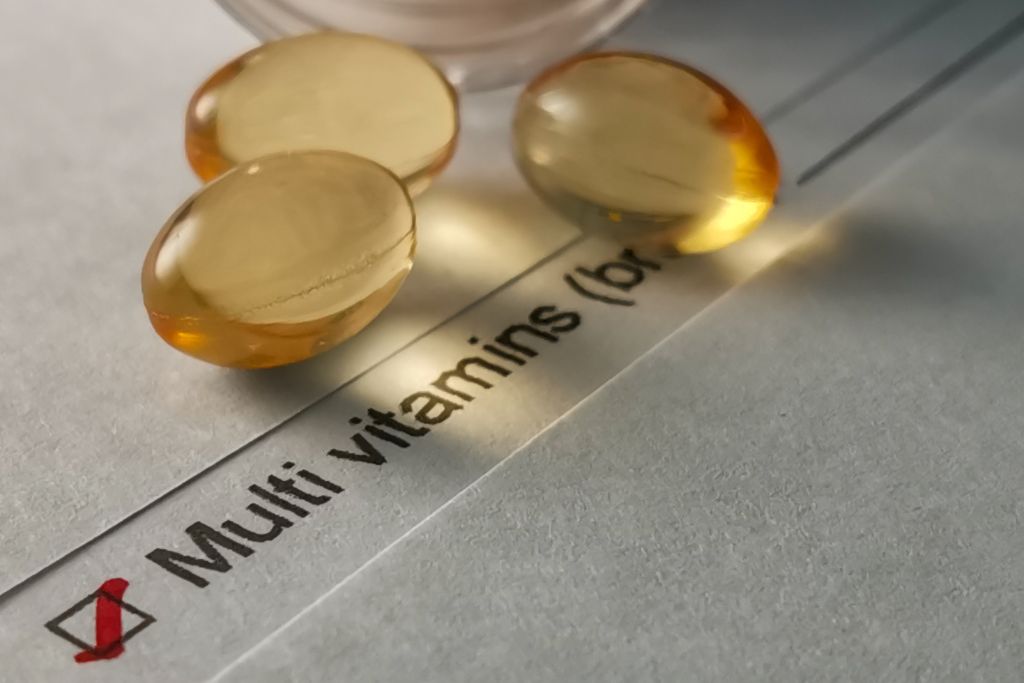
Are Multivitamins Good for You? – The Truth Behind Vitamins and Supplements
You might have been told that you should take a daily multivitamin to protect your body from the many harmful effects of modern life. Or that if you’re not eating meat or dairy, you need to take a vitamin supplement as well as add more protein and iron to your diet. While there may be some truth to these suggestions, taking a multivitamin is not something that everyone should do. Many people who think they are taking one actually end up spending money on useless supplements instead. Therefore, it’s important to know what’s really going on when it comes to vitamins, so let’s clear things up here.

What are vitamins?
Vitamins are organic compounds that our bodies require to create coenzymes, which are molecules that help turn food into energy. Vitamins can also be found in other sources such as fortified foods and supplements. They are essential for the body to function properly. Some vitamins have been classified as micronutrients, which can be divided into two categories:
Water-soluble and fat-soluble vitamins.
Water-soluble vitamins dissolve in water and are excreted from the body when urine is produced.
Fat-soluble vitamins get stored in the liver, fatty tissues, and some cells of the body, so they can be found in the bloodstream for a long time after their consumption.

What is a multivitamin?
A multivitamin is a dietary supplement that contains various vitamins and minerals. They are not meant to replace your daily diet, but rather complement it. Vitamins come in two different forms: liquid or tablet. Some people prefer a liquid vitamin because they can take it with them on the go, whereas others prefer tablets because they may be easier for seniors or children to swallow. The most popular multivitamins include:
• Centrum Silver
• Centrum Silver Extra Strength
• Centrum Adult Chewables
• One A Day Men’s Formula (One A Day Women’s Formula)
• One A Day Complete Nutrition Women’s Formula Every multivitamin comes with a list of ingredients so you know exactly what you’re taking before taking a supplement. These supplements have been given the stamp of approval by most doctors.

Individual vitamins vs. multivitamins
The most important thing that you need to know is that vitamins are not the same as supplements like multivitamins. Vitamins are found naturally in food, while supplements are made in a lab or bought on the internet.

Vitamins and supplements have different purposes. Vitamins help your body function, while supplements may have other benefits for your health like sexual performance and weight loss. So when someone says that you should take a vitamin supplement, it’s usually referring to a multivitamin, which is just one type of vitamin.
Does taking a multivitamin help your body?
There’s no scientific evidence that taking a multivitamin will help your body in any way. There are plenty of studies that show that taking a multivitamin may not actually make you healthier. For example, in one study 44 percent of the participants who took a multivitamin said their cognitive function had improved. However, it was found that this was only true for those who weren’t deficient in vitamin B 12.

The truth is, most people don’t need a multivitamin at all. If you’re eating a healthy diet and getting enough protein and iron from animal sources, then there’s no need for additional vitamins.
Theories on why you should take a multivitamin
The first reason many people believe in taking a multivitamin is that they want to protect their bodies from the harmful effects of modern life. There is some truth to this theory. There are also many other factors that can contribute to a person’s health, such as their genes and what they eat. Taking a daily vitamin won’t prevent all diseases and illnesses, but it could certainly help reduce the occurrence of certain diseases or problems when taken on an ongoing basis.

Another theory for why you might take a multivitamin is that you don’t eat meat or dairy (or enough protein or iron). This theory is also true; however, there are other ways to get these nutrients into your diet without resorting to supplements. Eating more plant-based foods like vegetables, fruit, grains, legumes, nuts, and seeds will provide you with plenty of nutrients without the need for supplements.

Lastly, some people think that taking a multivitamin will help them lose weight by increasing their metabolism. While this may be true in some extreme cases, it’s not accurate if you’re looking at just one multivitamin. You’ll likely need to take at least 5-10 different vitamins at once in order to see results like this.
Side effects of multivitamins
During the manufacturing process, multivitamins are often exposed to harsh chemicals. This may cause a number of negative side effects, including nausea and diarrhea. These side effects are not just limited to people taking the supplements, but also to those who live near factories that manufacture them.

The chemicals used in manufacturing may be toxic and harmful to humans, animals, and plants alike. People who decide on taking a daily multivitamin should do so knowing that they might have some of these side effects if they are located near an industrial area.
Synthetic vitamins, which can have negative effects when taken in excess, are also found in multivitamins. Synthetic vitamins can cause imbalances in your body which will make you sicker than you would otherwise be without synthetic vitamins.

Vitamins with minerals will only provide you with benefits if you are deficient in that particular mineral or vitamin already. If you’re already getting enough from your diet or other sources, don’t waste your money on this supplement because it’s not doing anything for you when it comes to health.
Summary
Vitamins are bioavailable, meaning that your body can use them to help it function properly. They are also water-soluble, which means that if the body has enough water and antioxidants, it can easily make use of these vitamins. The only time when you should take a supplement is if you’re not getting enough nutritional value from the foods you eat. It’s also important to note that most multivitamin supplements are actually made from synthetic compounds rather than from vegetables or whole foods.




